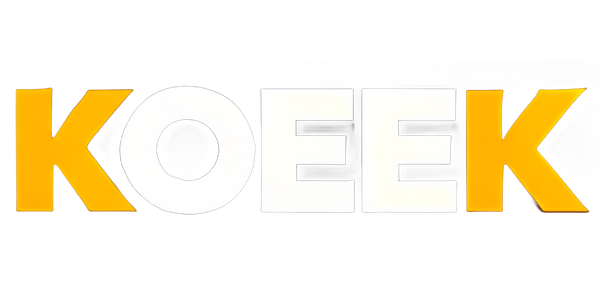If you can't even tighten a screw, what else can you do?
Title: If You Can't Even Tighten a Screw, What Else Can You Do?
Have you ever been in a situation where you find yourself struggling to complete a task as simple as tightening a screw? You might find yourself asking, "If I can't even tighten a screw, what else can I do?" The answer to this rhetorical question is, quite simply, a lot! The inability to perform one minor task does not define your capabilities or potential. In this article, we’ll explore the broader context of skills and competencies, delve into the importance of a growth mindset, and discuss how leveraging technology can help you excel in areas you might not have considered before.
The Broader Context of Skills and Competencies
First off, let’s establish that no single skill, such as tightening a screw, can encapsulate a person's overall ability or intelligence. Competencies span a wide range of areas including emotional intelligence, creativity, analytical thinking, and leadership skills. Just because you might struggle with a specific manual task doesn't mean you lack other essential skills.
Consider the fact that modern professionals often specialize in certain domains. An accountant might not know how to fix a leaky faucet, and a software developer might struggle with changing a tire. However, their specialized skills make them invaluable in their respective fields. The key is recognizing and nurturing your strengths while being open to learning new skills.
The Importance of a Growth Mindset
Adopting a growth mindset is instrumental in overcoming any feelings of inadequacy. A growth mindset, a concept popularized by psychologist Carol Dweck, posits that talents and abilities can be developed through dedication and hard work. This contrasts with a fixed mindset, where people believe their basic qualities, such as intelligence or talent, are static traits.
Having a growth mindset means viewing challenges as opportunities to grow rather than insurmountable obstacles. Struggling to tighten a screw shouldn't be a deterrent but rather an invitation to learn. YouTube tutorials, DIY forums, and even local community workshops can provide you with the resources to improve your practical skills. Remember, every expert was once a beginner.
Leveraging Technology to Bridge Skill Gaps
We live in an era where technology can significantly bridge the gap between incompetency and proficiency. Don't know how to tighten a screw? There are smart screwdrivers that come with built-in torque settings, ensuring you don’t over or under-tighten. Moreover, augmented reality (AR) apps can guide you through the process step-by-step, making even the most complex tasks manageable.
In a broader sense, technology can help you excel in numerous areas. Online courses, webinars, and virtual workshops provide avenues for learning new skills. Platforms like Coursera, Udemy, and Khan Academy offer a plethora of courses covering everything from machine learning to public speaking. You can even find specialized courses that offer certifications, making you more marketable in the job market.
Practical Steps to Enhance Your Skill Set
1. **Identify Weak Areas**: Start by making a list of skills you feel you're lacking. Whether it's practical tasks, soft skills, or technical know-how, identify areas where you want to improve. 2. **Set Realistic Goals**: Define what proficiency looks like for each skill. Setting achievable milestones will keep you motivated. For example, aim to learn how to use a power drill within a month. 3. **Leverage Resources**: Utilize online tutorials, enroll in courses, or even join local community groups. Don’t underestimate the power of networking; sometimes, the best way to learn is from someone who already knows. 4. **Practice Regularly**: Like any other skill, practice is crucial. Allocate time each week to work on your new skills. The more you practice, the more proficient you'll become. 5. **Seek Feedback**: Constructive criticism can help you improve faster. Don’t shy away from asking friends, family, or colleagues for feedback on your progress. 6. **Celebrate Small Wins**: Each step forward is a victory. Celebrating these small achievements can provide the motivation needed to tackle larger challenges.
The Role of Soft Skills
While technical skills are valuable, soft skills like communication, adaptability, and emotional intelligence are equally important. These skills are often the most critical when it comes to career advancement and personal development. They enable you to work more effectively with others, adapt to new situations, and navigate the complexities of both professional and personal life.
Developing soft skills involves continuous learning and self-awareness. For instance, improving your communication skills might mean practicing active listening or taking a public speaking course. Enhancing emotional intelligence could involve mindfulness practices or empathy training. These skills not only make you more effective but also more resilient in the face of challenges.
Conclusion: Embrace the Journey of Continuous Learning
In conclusion, the inability to tighten a screw is not a measure of your overall capabilities. What truly matters is your willingness to learn, adapt, and grow. By adopting a growth mindset, leveraging technology, and focusing on both hard and soft skills, you can transform any perceived inadequacy into a strength.
Remember, every expert in any field started somewhere. The journey of continuous learning is what shapes us into well-rounded, competent individuals. So the next time you struggle with a small task, take it as an opportunity to learn and grow. Who knows? You might discover a hidden talent or ignite a new passion along the way.


